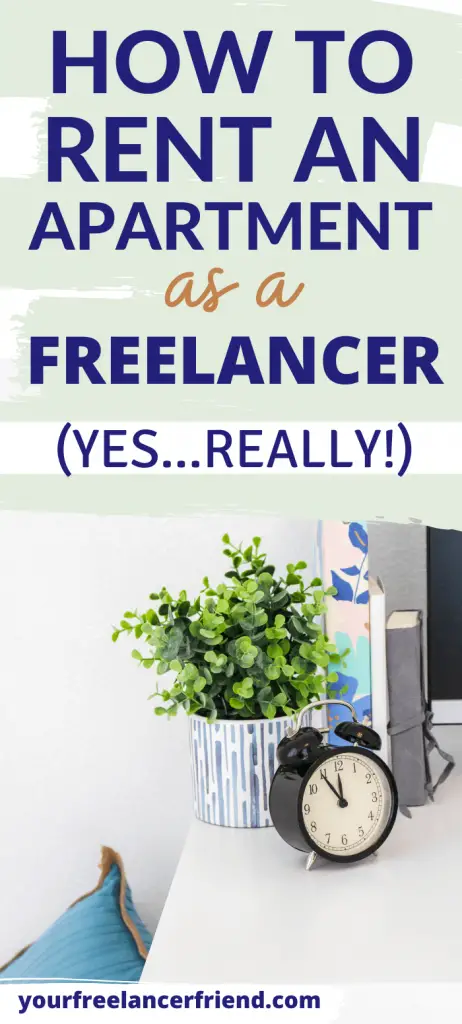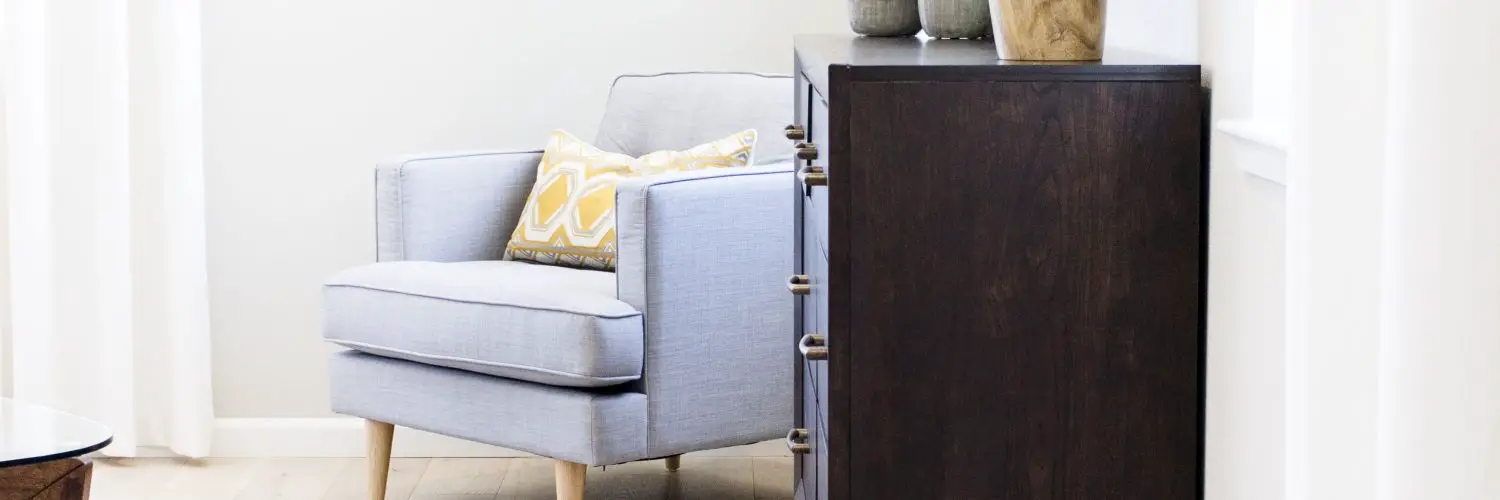I’ve been a freelancer for the past six years, and throughout this entire time, I’ve also been a renter—so I know the in’s an out’s of how to rent an apartment as a freelancer!
Sadly, sometimes it will be more difficult than it should be. But the good news is that I’ve never had anyone turn me away just because I am self-employed.
If you want to improve your chances of being able to rent an apartment without proof of employment or pay stubs, read on!

#1 Gather Records to Prove Your Financial Solvency
Honestly, apartment complexes and landlords just want to know that you’re not going to miss rent. To them, renting to someone who is employed is more stable than renting to someone who is self-employed.
So all you’ve got to do is prove your financial solvency as a freelancer—show them you’ve got the means to pay (and continue to pay) rent!
Here are some documents you can show to the leasing office or landlord:
- Tax Returns – They’ll probably want to see the most recent year. The general rule of thumb is that, each month, you need to be bringing in an income of at least three times the monthly rent.
- Bank Statements – If you just started freelancing this year and therefore don’t yet have a tax return that reflects your freelance business, show them your bank account. Maybe your checking account shows more than enough money to pay rent. Or, maybe you have enough in savings to cover many months of rent. The more cash you can show, the better.
- Client Contracts – Showing your client contracts, which should state how much they are paying you, can also help to prove your financial stability.
- Credit Check – Most landlords will want to run a credit check. But you can also run a credit check on yourself, print it out, and bring it with you to show them immediately how good your credit score is (assuming that it is good!).
#2 Pay Months in Advance
I had a friend who, though not a freelancer, once paid 6 months of rent upfront so that she could get an apartment that other people wanted. Remember, it’s a business for the landlord, so if you can sweeten the deal by guaranteeing rent for many months—then go for it!
#3 Find a Private Landlord
Private landlords, as opposed to rental agencies, are often easier to deal with. The last apartment I rented was from a private landlord. He owned a house with an in-law unit in the backyard that he wanted to rent out. On the application form, it asked for my monthly salary. I put an average of what I normally earn (because as freelancers, we often have high and low months!) and then I wrote an explanation on the bottom saying that I’m self-employed and my income varies each month. I also offered to provide him with tax returns and bank statements should he want to verify my income. He didn’t even question it. He ran a credit check, and that was all he needed to approve me for the apartment.
#4 Get a Co-signer
Some landlords or rental agencies may allow you to have someone co-sign your lease, meaning they will be financially responsible for paying rent if you don’t. It’s a huge risk for the co-signer, but if you have a good relationship with them, they might be willing to do it.
I’ve never personally done this, and I would only do it if it were a last resort and an apartment I really wanted and couldn’t get without a co-signer.
#5 Use Airbnb, VRBO, or Something Similar
If you want to skip the whole “financial verification” stuff altogether, go through a booking platform such as Airbnb or VRBO. Granted, these are typically vacation rentals and may be more expensive than the market price because of that. But sometimes it’s worth the higher price to be able to have the convenience of not having to prove your financial stability. It also works great if you’re a digital nomad freelancer moving from place to place many times a year.













Add comment